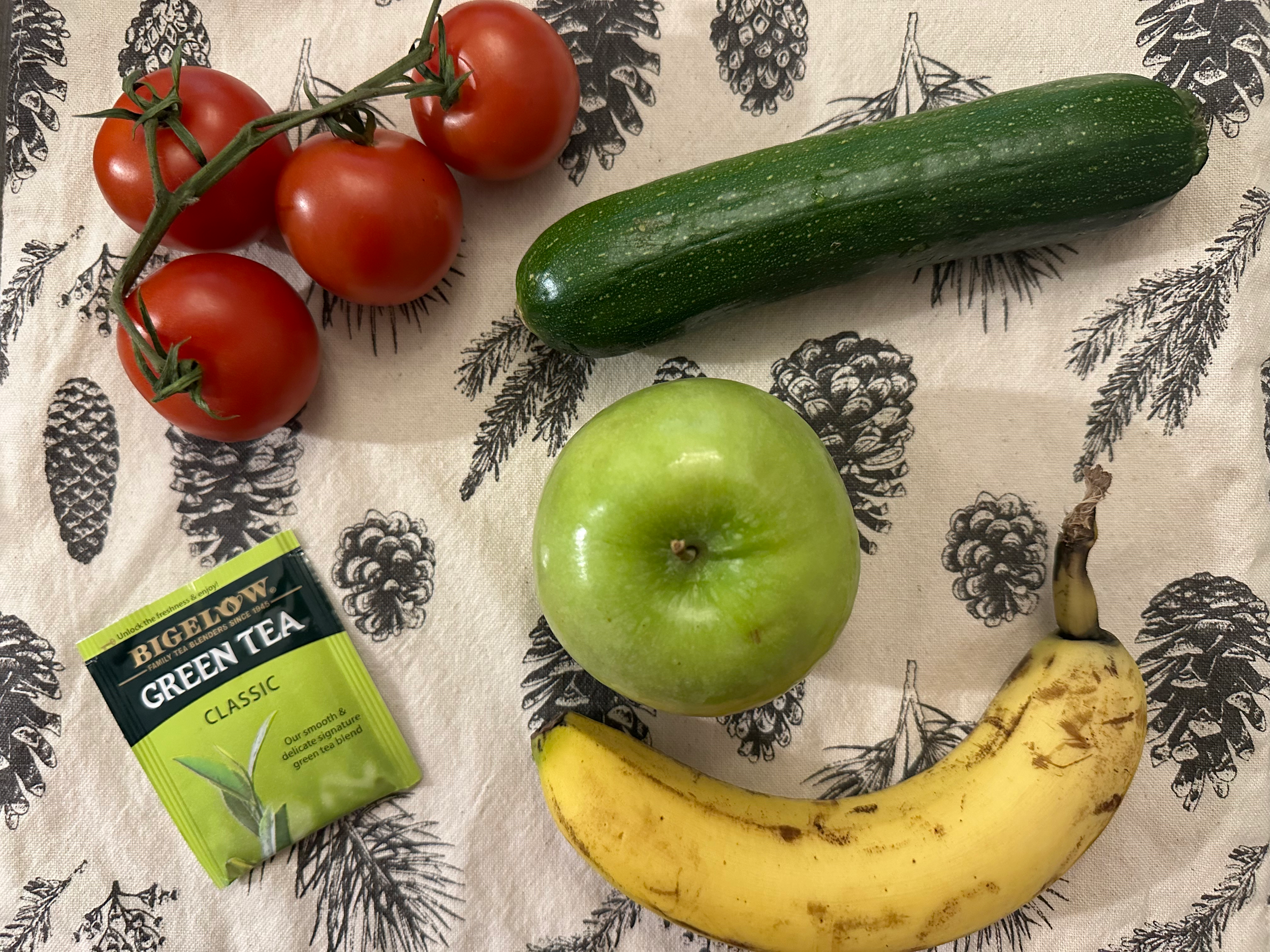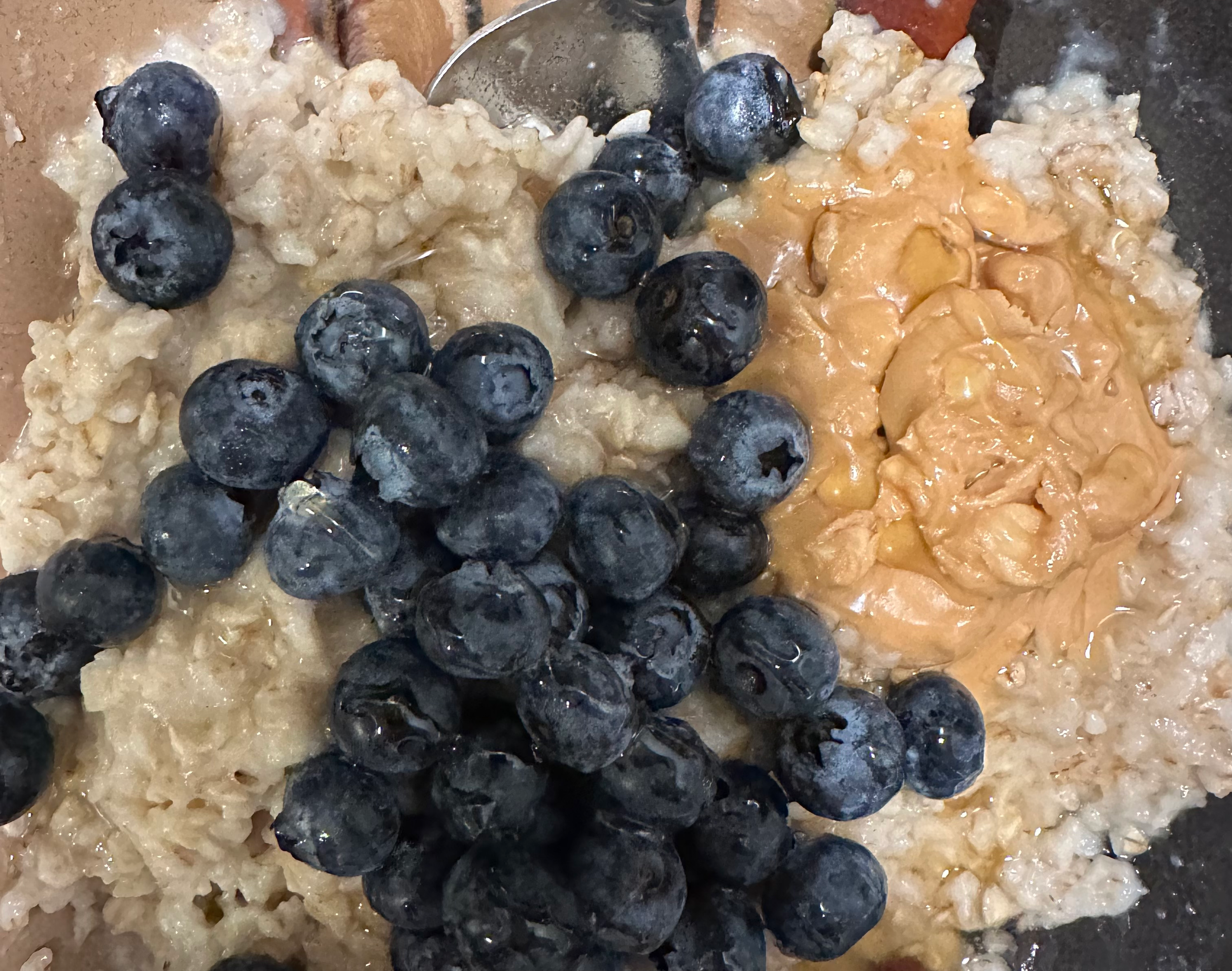The Connection Between Food and Mood, According to a Registered Dietitian
How does what we consume affect how we think and feel?
Nourish with the proper amount of vitamins, minerals, and antioxidants to flourish.
When it comes to mental health, what we’re putting in our body may not be the first thing that comes to mind, but what we eat actually has a direct impact on the function of our brain. While fried foods and sugary desserts may make us feel good in the moment, in the long run, consuming too much of them can have a negative impact on our mental and physical health. To help you learn more about the connection between food and mood, I spoke to Registered Dietitian-Nutritionist Megan Hilbert with Top Nutrition Coaching for insight.
Negative Impacts of Consuming Low-Nutrient Foods
Refined and processed foods, such as sugar, are harmful to the brain. Not only that, they can also lead to inflammation and oxidative stress. This is why consuming the proper amount of vitamins, minerals, and antioxidants is necessary to nourish the brain properly and protect it from the waste we produce when we use oxygen. Improper brain function can result in an increase of anxiety and depression, which is why it’s so important that we focus on fueling our bodies properly.
“The overwhelming evidence we have is that the standard American diet causes worse symptoms of depression and anxiety,” says Hilbert.
Fried foods, for example, are linked to greater levels of depression since they’re thought to trigger neuroinflammation and lipid metabolism, which can have a direct impact on our mental health. Hilbert says that sugar can contribute to feelings of depression since it feeds bad bacteria and increases inflammation in the body, which decreases the production of brain-derived neurotrophic factor (BNDF), a brain chemical that helps the brain grow and adapt to stress.
The Link Between the Gut and Brain
It’s important to eat nutrient-dense foods in order to grow good bacteria in your gut. As a result, your body will produce dopamine and serotonin, which are feel-good chemicals. According to Hilbert, the gut and brain are linked through our nervous system. Over 90 percent of serotonin is found in the gut, which is why it’s believed that brain-serotonin deficit is impacted by the gut. Our mood is based on the messages we receive from our brains, so when we consume foods with sugar, for example, we are feeding bad bacteria in our gut, triggering inflammation, and placing ourselves in a bad mental state. Focus on increasing your fiber intake and eating plant-based foods to promote healthy gut microbiome and improve your mood.
Nutrient-Dense Foods to Add to Your Diet
Grocery Store Grabs
Be sure to have complex carbohydrates and healthy snack options handy.
Best Foods for Sustained Energy
Carbohydrates provide energy for the body, which is why they should be consumed prior to a workout, but the type of carbohydrates being consumed are important to consider for mental and physical health. Refine carbohydrates, such as cookies, white pasta, and granola, create peaks in our blood sugar levels which eventually leads to a crash and decreased energy. Therefore, focus on eating complex carbohydrates, such as brown pasta, nuts, and oats to maintain energy throughout the day. In addition, Hilbert says that, “healthy fats, like macadamia nuts, walnuts, and nut butters, like almonds butters, can help with cognitive function and boost energy,” which allows the body to slow sugar absorption and decrease the chances of a blood sugar crash.
Foods for Memory and Focus
Memory and focus play a role when it comes to having a strong mental state. Hilbert discusses what the best foods are for better memory and focus:
Fatty fish: They include omega-3 fatty acids,
Blueberries: They are full of antioxidants, which improves cognitive function and communication between blood cells.
Green tea: This type of tea includes L-theanine, an animo acid that makes us more alert and reduces anxiety.
Coffee: Less than 200mg of coffee daily improves alertness, concentration, and decreases the risk of developing neurological diseases.
Vitamins, Minerals, and Antioxidants
Try adding whole grains to your diet.
Steel cut oats with egg whites, almond butter, blueberries, honey, cinnamon, and sea salt for breakfast.
The best way to lower symptoms of depression and improve your mood is by limiting foods like sugar, refined carbohydrates, alcohol, and fatty meats and by adding in the proper amount of vitamins, minerals, and antioxidants. To consume the proper amount of nutrients daily, focus on eating a diet that’s predominate with plant-based foods.
“Research shows that eating 30 different plant foods—whole grains, nuts, seeds, herbs, spices, legumes, beans—per week has been associated with a healthier, more diverse microbiome and this in turn can play a huge role in managing mood disorders,” says Hilbert. She adds that eating fatty fish, lean meat, and fermented dairy helps you consume lots of essential nutrients that fuel our brain and lower symptoms of depression and anxiety.
According to Hilbert, these are the best nutrients and foods within those nutrients to limit feelings of anxiety and depression:
Probiotics: Eating probiotics daily decreases depression symptoms which is believed to be because certain gut bacteria can increase brain chemical levels. Try eating yogurt, kefir, miso, kvass, and kimchi.
Prebiotics: Our microbiota eats prebiotics to stay alive and well. Try eating garlic, onion, asparagus, artichoke, oats, and bananas.
Vitamin B12: Lacking in this nutrient can lead to higher rates of depression and dementia. When we lack Vitamin B12, we become deficient in folate which can contribute to losing brain cells. Try eating meat, fish, eggs, dairy, and nutritional yeast.
Folate: Lacking in folate can lead to depression. Try eating dark leafy greens, peanuts, whole grains, sunflower seeds, and fresh foods.
Omega-3: This fat supports our cell metabolism to improve energy, decrease inflammation, and regulate hormones. This also fights depression and anxiety. Try eating fatty fish, such as salmon, tuna, sardines, and mackerel.
Living a Balanced Lifestyle
The best way to eat food for a better mood is to not focus on what you’re taking out of your diet, but instead to prioritize adding in proper nutrients. Hilbert says that this allows for a better mindset around food and that when we increase healthier food in our diet, it’ll naturally make less room for unhealthy foods.
“Instead of thinking about how much less fried food you will try to eat, instead try to focus on how many more high omega-3 foods you plan to eat each week,” says Hilbert.
Megan Hilbert, MS, RDN
Registered Dietitian with Top Nutrition Coaching who specializes in gut health, IBS, the gut-brain axis, and intuitive eating.




